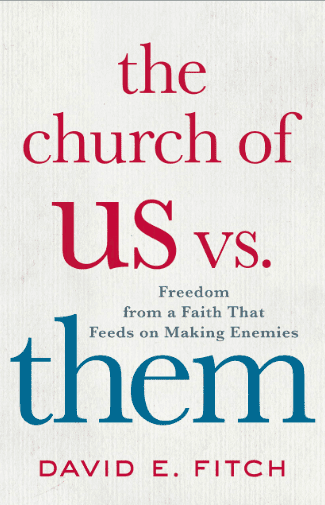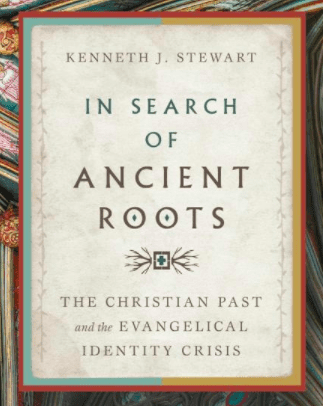 A couple of years ago Pete Enns, along with Marc Brettler (Brandeis University) and Daniel J. Harrington (Boston College) participated in a panel discussion at The University of Pennsylvania on “The Challenge of Reading the Bible Today: Can the Bible be read both Critically and Religiously? Jewish, Catholic and Protestant Perspectives.” The audio of the panel discussion is available on Pete’s old blog (before the move to patheos) a time to tear down, A Time to Build Up. Pete also has made available a written copy of his opening comments here (or for direct link to pdf here).
A couple of years ago Pete Enns, along with Marc Brettler (Brandeis University) and Daniel J. Harrington (Boston College) participated in a panel discussion at The University of Pennsylvania on “The Challenge of Reading the Bible Today: Can the Bible be read both Critically and Religiously? Jewish, Catholic and Protestant Perspectives.” The audio of the panel discussion is available on Pete’s old blog (before the move to patheos) a time to tear down, A Time to Build Up. Pete also has made available a written copy of his opening comments here (or for direct link to pdf here).
The audio is well worth listening to – the discussion was fascinating for many reasons. All three of the speakers have written popular level books dealing the scripture – Pete’s book Inspiration and Incarnation has been discussed here extensively. About the same time (2005) Marc Brettler wrote How to Read the Jewish Bible and Daniel Harrington How Do Catholics Read the Bible?. All three of these scholars have thought seriously about the interpretation of scripture, both religiously and critically, and all of them have thought about the importance of entering into this conversation with a general audience.
A new book, The Bible and the Believer: How to Read the Bible Critically & Religiously by Brettler, Enns, and Harrington, has now come out of the conversation that began in the panel discussion at U Penn. This book consists of a short introduction on the historical/critical reading of the Old Testament, and then follows through with an essay by each of these scholars, and a response by each of other two.
Over the course of the next few weeks I will look at each of the principle essays and responses in the book, starting with Brettler’s Jewish view, then Harrington’s Catholic view, and concluding with Pete’s Protestant view. For today however, I would like to point back to Pete’s original comments at the panel discussion to set the stage for the posts to come.
In his opening comments Pete identified three factors that figure into the Protestant difficulties with scripture.
The first factor is the reformation refrain sola scriptura. Scripture is seen as the foundational authority and the stakes are seen to be very high.
The second factor is the conflict of the 19th and even early 20th century that set into place a social narrative that needs to be rewritten – for many even thinking about the nature of scripture critically is seen as a step toward rejection of heritage and tradition.
The third factor is the nature of scripture in Christian thinking about scripture, here Pete quotes a professor of his at Harvard and reflects on the Christian view:
A few years back, one of my doctoral professors, the noted Jewish biblical scholar Jon Levenson, wrote an article on Judaism and biblical theology. In it he commented on the overarching difference between how Jews and Christians view the Bible. It struck a chord with me that still resounds. He said, “For Jews, the Bible is a problem to be solved; for Christians it is a message to be proclaimed.” This is an important distinction that helps explain why Protestants have an uneasy relationship with higher criticism. (p. 8-9)
…
For Protestants—and I should broaden this to all Christians—the Bible is not there to set us on an exegetical adventure where we discover God in the problems. It is there to proclaim what God has done in Christ. The Bible is a grand narrative that as a whole tells ultimately ONE story with a climax: the crucified and risen Son of God. The NT authors model this on virtually every page: they go to great lengths to explain how Jesus of Nazareth completes Israel’s story and gives it coherence. Taken as a whole, the Christian Bible has a point—a message to be proclaimed. (p. 9)
I highlighted this last factor because an understanding of this factor – and some serious thought about the purpose of scripture may help to point the way forward, out of what has become for many something of a serious problem. This leads to an interesting way to frame the question.
Is the Bible a book we submit to and proclaim?
or
Is the Bible a book we wrestle with – critically, theologically, practically – to discover God?
One of the important things I think we learn from the Wisdom books, (not to mention the Law, the Prophets, the Gospels, and the Epistles) is importance of wrestling with the Bible critically, theologically, and practically, to discover God. This is really a major driving motivation behind the series of posts on Job. The book of Job is profound in what it tells us about ourselves and about God – but only if we read it for all its worth and wrestle with the content of the text on its own terms. The “typical” rather flat evangelical reading of Job (if there is such a thing) leaves much to be desired, and often squeezes the life out of it to force conformity with the expected proclamation of scripture.
As Christians we certainly do believe that we have a message to be proclaimed – a message to be proclaimed to the ends of the earth. A message that is, at its core, Good News. But does this mean that the Bible is simply focused on this proclamation?
The final section of Pete’s talk deals with the way forward (p. 10-12).
This middle group of Protestants—shaped by sola Scriptura and deep sociological factors—must try to create a culture where critical self-reflection is valued rather than being a threat. They must take steps to come to peace with the Bible as it is, not as it has been for their tradition.
…
The way forward may be a willingness on the part of Protestants to evaluate how well things are working and to make changes where necessary. Some might say that such a program would compromise the very Protestant spirit. I disagree. I think it calls upon the true spirit of the Reformation, but now turned inward, not simply on the enemy lurking outside of the walls. Critical self-evaluation is the first step to answering the question before us in the affirmative. The Protestant predicament, however, is that it may also be the hardest step to take. Where all this is headed is beyond me but will certainly be interesting to watch unfold.
Back to the The Challenge of Reading the Bible Today. The whole panel, including the comments by Marc Brettler and Daniel Harrington, as well as the Q&A with the audience are well worth listening to and considering. Insights from many perspectives can help us see more clearly. The book with its more extended interaction should be interesting.
If you wish to contact me directly you may do so at rjs4mail[at]att.net
If interested you can subscribe to a full text feed of my posts at Musings on Science and Theology.











